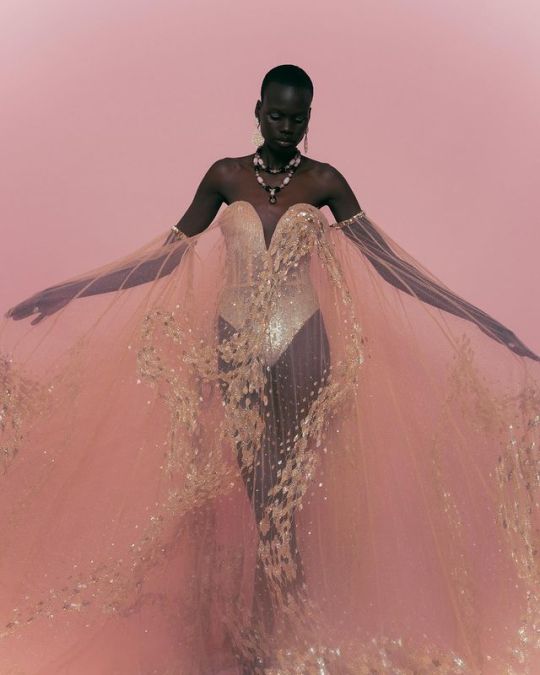Note
❣️ Freeze ❣️ You’re under arrest for being so lovely. Copy this message to other blogs that you think are beautiful and deserve it. Nothing bad will happen if you break the chain, but you can keep the game going and make others feel beautiful!

1 note
·
View note
Note
💌send this to the twelve nicest people you know or who seem to have a good heart and if you get five back you must be pretty awesome.💌

1 note
·
View note
Text
Snape and what a victim is supposed to look like.
Or: The reason you all hate him so much while making up excuses for other characters!
Would he still be so despised by the fandom, if he had been portrayed as weaker? As more emotional?
No, i don’t think so.
Others have said this before and i have to agree with what they said:
Y‘all are angry, because he is not the perfect victim.
He is not what you would expect a victim of abuse and bullying to look like.
He is confident.
He is strong.
He is sharp.
And he is bitter.
He is so, so bitter.
he harbours resentment.
He does not forgive those who wronged him.
When that is exactly what you would expect from a victim, is it not??
A victim is supposed to look weak and behave weak and to suck it up.
And to forgive.
When you tell people they have to forgive their tormentors, do you really tell them that so that they can heal?
Or…. so you don‘t have to deal with the mess?
Maybe, so you don‘t have to adjust your world view?
People are not obligated to forgive their tormentors.
It doesn‘t matter if they have changed.
What matters is how they made the victim feel.
And if the victim feels if they can forgive them.
And if they chose not to forgive, they turn in something else in your eyes.
They turn into the hater, the bully, the bad guy.
Bacause the victim is supposed to forgive and forget and let it go and not be bitter about it.
A victim is supposed to turn into a good person.
To learn from their experiences to be kinder to others.
To not treat others like they have been treated.
They are not supposed to not be able to let it go.
And if they are not able to do that, well then there‘s something wrong with them.
If a victim doesn‘t turn out the way they wanted them too, well - then they had it coming from the beginning and they probaly deserved what happened to them because they would have turned out bad either way!
Snape is the opposite of what a victim is supposed to be like.
Severus turned into a resentful and bitter adult.
He was never able to move on and heal from his trauma.
And at the same time, he knows who he is and what and doesn‘t make up excuses for his behaviour and instead just accepts himself the way he is.
And that is what makes you so fucking mad.
He turns into an asshole and is not sorry about it.
He is openly resentful and at times hateful.
And he is not fucking sorry about it.
And it makes all of you mad because that is not what is supposed to happen.
And let‘s not lie to yourselves- if he didn‘t have greasy hair and a hooked nose- you would look at him from an entirely different angle.
Like you do with Tom Riddle, or Regulus Black or Draco Malfoy.
293 notes
·
View notes
Text
So...
I just finished reading Aliens Bishop by T.R. Napper and to anyone out there that has also read it and happens to be a Bishop fan like me and read it too...
I really really REALLY need Lance Bishop/Karri Lee fanfiction like yesterday. That has to happen. Right?
0 notes
Text



Amilna Estevão by Alexi Lubomirski for Harper’s Bazaar Magazine August 2016
211 notes
·
View notes
Text
Severus Snape is such an awful person. I don’t understand how people can like him after everything that he’s done. Remember the time he gave an eleven-year-old child a pig’s tail because the child’s FATHER said something that made him mad? Wait. Never mind. That was Hagrid.
But he DID remove a kid’s bones from his arm and later tried to wipe two kids’ memories. How could anyone forgive THAT? Shoot, I forgot. That was Gilderoy Lockhart.
Remember the time Snape made Neville sleep in the hallway when an alleged mass murderer was on the loose INSIDE THE SCHOOL? What a fucking dick. But shit. Someone just told me that was McGonagall.
Remember when Snape treated Hermione like shit because he thought she broke Draco’s heart by showing interest in Harry? Wow, what an asshole. Yikes, I’m wrong once again. That was Molly Weasley when she thought Hermione broke Harry’s heart by showing interest in Viktor Krum.
But Snape scarred a girl’s face when she gave the Order of the Phoenix information about the Death Eaters! Can you tell me he isn’t a terrible person now? Ugh, why do I keep forgetting things? That was Hermione Granger scarring Marietta Edgecombe’s face for giving Dolores Umbridge information about Dumbledore’s Army.
Wait, I have it. The absolute worst things Snape ever did. HE SEXUALLY ASSAULTED A FELLOW STUDENT FOR FUN. FOR A LAUGH. “BECAUSE HE EXISTED.” AND WHEN HIS CRUSH INTERVENED, HE TOLD HER HE WOULD CURSE HER IF SHE DIDN’T GO OUT WITH HIM. HE ALSO TOLD HER HE WOULD LEAVE HER FRIEND ALONE IF SHE WENT OUT WITH HIM. HE EVEN COMPARED HIS CRUSH TO A SNITCH FOR HIM TO CATCH, WHAT AN OBJECTIFYING MISOGYNIST. AND HE ATTEMPTED TO MURDER THAT SAME KID TOO. Wait…wait. Are you really telling me that I’m wrong here too? Okay, you’re right. You’re right. It was James Potter who sexually assaulted the kid and treated his crush like shit and Sirius Black who attempted to murder him. And guess who that kid was? Severus Snape.
“But Snape joined the Death Eaters! He was mean to his students!” Both of these things are true. However, they do not discount all the good Snape did, especially because the bad the other characters here did doesn’t seem to discount the good they did.
1K notes
·
View notes
Text
Does any kind, inventive, insightful, discerning soul around here have any meta/headcanon about the Serpensortia business? Because this bit:
“Snape moved closer to Malfoy, bent down, and whispered something in his ear. Malfoy smirked, too.”
Just before Draco casts the spell is basically thrust upon my undeserving soul by the gods without explanation, and it’s been twenty years but I still haven’t made up my mind about what it is waving a hand towards.
So, what’s the general consensus, here? Private tutoring? One-off quick lesson the evening before this scene happened because Severus had it all planned out, the conniving rogue? Super cool spell Draco learnt from Lucius/Narcissa and Severus just knew he knew? Signature Slytherin spell any first year learns because it is fun and Aesthetic so Severus took for granted Draco knew it?
I think I’ve basically cycled through every option and I’m not done.
125 notes
·
View notes
Text
people will go on and on about snape’s supposed favoritism but i honestly…. don’t remember snape giving slytherins that much preferential treatment??? at least not anymore than any other professor (coughmcgonagallcough). i mean he did let draco malfoy get away with a lot but…. beyond that??????
and it’s weird to me bc it’s SO clear that snape’s persona is built for his spying. so on one hand, sure, snape may actually favor slytherins and hate every other house. (and that’s valid lmao) but on the other hand, we literally just…. can’t know how much of snape’s supposed favoritism is built bc so many of his students have death eater parents and how much of it is true. we can’t know!!!! bc we never see snape’s pov and we never really see him interacting with students WITHOUT being a spy.
idk. i feel like people throw out the ‘snape favors slytherins SO MUCH’ argument without like…. anything to really back it up & without much critical thinking on a) why snape would favor slytherins, if he does and if there’s any actual reasons why he might do so and b) if snape’s favoritism would be at all affected by the fact that he is a double agent teaching a bunch of death eaters’ kids who regularly report back to their parents.
238 notes
·
View notes
Text
Shades of Snape: A Short Analysis
Snape was hanging upside-down in the air, his robes falling over his head to reveal skinny, pallid legs and a pair of greying underpants.
Many people in the small crowd cheered; Sirius, James, and Wormtail roared with laughter.
[…]
At the foot of the stairs stood the only person who could make Harry’s situation worse: Snape. He was wearing a long gray nightshirt and he looked livid.
It occurs to me that the character whom Rowling once described as “all grey” in terms of where he stood as a moral archetype is only seen wearing articles of clothing that are grey by Harry in moments where he’s most candid and most vulnerable. Either as the boy whose school bullies have turned his own spell against him and left him hovering upside down with his “greying underpants” exposed to public laughter. Or, as the man who is uncharacteristically caught in his “long gray nightshirt” following Barty Crouch Jr.’s theft from his Potion’s Storeroom rather than his more customary dark, billowing robes that have earned him his moniker of “Bat of the Dungeons.”
Of course, what follows when Crouch-as-Moody appears on the scene is not only a chipping away at Snape’s confidence (i.e. confidence in his security at Hogwarts, in Dumbledore’s trust in him, where he stands, etc.) but also a key revelation that demands both Harry and the reader reevaluate what we know about this man.
Moodys face twisted into a smile. “Auror’s privilege, Snape. Dumbledore told me to keep an eye -"
"Dumbledore happens to trust me,” said Snape through clenched teeth. “I refuse to believe that he gave you orders to search my office!"
"Course Dumbledore trusts you,” growled Moody. “Hes a trusting man, isn’t he? Believes in second chances. But me - I say there are spots that don’t come off, Snape. Spots that never come off, d'you know what I mean?"
Snape suddenly did something very strange. He seized his left forearm convulsively with his right hand, as though something on it had hurt him.
Moody laughed. "Get back to bed, Snape.”
So, we have two occasions where Snape’s “shades of grey” are revealed both figuratively and literally to Harry and to the reader. In one instance, Harry witnesses Snape’s unusual vulnerability and defensiveness as Fake-Eye Moody challenges his place at Hogwarts and his authority. I would argue that it is no coincidence that Harry and the reader, subsequently, are given one of the biggest clues into Snape’s past and we see a physical, pained response from the man when reminded of his “spots that never come off.” Thus, the reader, like Harry, are encouraged to question the nature of this enigmatic man: Was he a Death Eater? If so, then what in his past or about him makes Dumbledore believe he can trust him? Most importantly, was Moody correct that there are just some spots that you can’t remove or are things, not unlike Snape himself, more complex than that?
In the second instance where we see a “shade of grey” exposed in Snape, Harry is not only placed in the uncomfortable position where he must reevaluate what he knows about Snape again but also, what he thought he knew about his father and his friends while they were at Hogwarts. Harry is left disturbed by Snape’s memories because they seem to validate some of the uglier allegations about James and his friends that Snape has insisted upon many times, both to Harry and to others. Ultimately, it’s far easier for Harry to dismiss Snape’s bitterness and anger as being the result of a petty school-boy grudge or a case of jealousy when he feels more inclined to like and trust the people who insist on remembering his father only fondly. Indeed, Snape’s own bias and inability to see past James to recognize Harry independently only gives Harry further reason not to believe any of his accusations as, if he could be so wrong about him, then surely it must be the same for his father (i.e. bias can breed bias).
However, it’s far more difficult to ignore the possibility that Snape might have been telling the truth (i.e. that there may have been a less kind, less noble, less idealized side to his father) once he finds himself witness to Snape’s experiences with James and the other Marauders, from Snape’s perspective. An interesting facet of the Pensieve within the Harry Potter series is that Rowling introduces an object that could be said to embody the very spirit of critically questioning one’s perspective (otherwise known as questioning the narrator in critical theory). The Pensieve affords the user an opportunity for a closer analysis, a second look, or even an unexpected perspective shift that demands we see things from different eyes than just our own. In many ways, the Pensieve can be read through the lens of critical theory as an object that presents us with a direct challenge to the bias that informs the unreliable narrator construct within Rowling’s fiction.
Thus, in the scene where Snape stands in his “shades of grey” before Fake-Eye Moody and his magical eye (which also functions as an object of exposure) Harry and the reader are left to question whether Snape is truly the villain he’s always been quick to believe him to be or if there may not be more to the story (his story, specifically) that he doesn’t know and which would make Dumbledore trust him, despite his “spots.” In the second instance, where Snape is more literally exposed and his “greying underpants” are own display, Harry is once again confronted with a different shade to Snape, one that he can actually empathize with due to his own firsthand experience –that of a victim of bullying.
Overall, I find it interesting that two key moments that would have us take a closer look at Snape as a character and reevaluate our impressions of him, Rowling would have chosen the motif of grey clothing that Snape would not have intentionally wanted to have on display. Add to that the fact that these are also moments where Harry witnesses Snape in a more vulnerable position, on the defensive in both instances and the subject of humiliation and mockery, and I would argue that we could make a case for a certain measure of deliberateness in Rowling’s choices. As subtle as the man himself, I do believe that Snape’s “shades of grey” were foreshadowing.
236 notes
·
View notes
Text
Also, the anti-Snape posters who TREAT being a werewolf as positive LGBTQIA+ representation and Snape notifying parents about Remus being a werewolf (after he attacked students and spent the night running around free as a fully transformed werewolf because he was shown to be negligent about taking the very difficult-to-brew and normally expensive potion Snape went out of his way to brew and personally deliver to him all year) as some kind of allegorical "outting" of his character should probably consider who the author of Harry Potter is before they make with the foamy outrage.
I mean, the woman who is an outspoken TERF and writes under a pseudonym that is literally name of the man who invented "conversion therapy" also claims she wrote an allegory for lycanthropy inspired by the HIV and AIDs panic of the 80s but the two examples she gives us of werewolf characters both prey on children, Lupin because he forgot his potion and "couldn't control himself" and Greyback because he just genuinely enjoyed targeting children.
Anyway, Snape notifying the parents that Lupin was a werewolf after he had already attacked three children, confessed in the Shrieking Shack he had had a habit of running around with his friends along the grounds as a werewolf while they were Animagus in his youth and hadn't reported to Dumbledore about Sirius being an Animagus all year because of that damning fact because he placed Dumbledore's opinion of him over Harry's and the school's safety as the DEFENSE teacher, and then spent the night once again roaming the grounds as a fully transformed adult werewolf because he neglected his potion was fully justified no matter how likable Lupin is as a character and it's telling even Lupin seems to accept it in a, "I know I really messed up and this being a consequence doesn't surprise me." kind of way.
Also, can we just talk about the fact the DADA position is canonically an actual cursed position no teacher has ever lasted more than a year in without some horrible consequence? Considering the fact that Quirrell died and Lockhart was left with permanent brain damage, I think we can safely argue that Dumbledore hiring Lupin to the post was a risk in and of itself and it adds additional context to Snape's anxiety over the choice because the worst case could not have just been what did happen (which again wasn't great) but Lupin actually killing someone or turning someone else into a werewolf and leaving them maimed and either joining Sirius in a life on the run with the trauma of knowing what he had done or spending the rest of his days in Azkaban while Dumbledore lost all his credibility for concealing the fact he was a werewolf from the parents and school board to hire him in the first place.
And given that he did spend the night running free and there was a chance the truth of his condition would get out regardless, Snape letting the information get out in the way he did was likely as much a case of damage control as it was any kind of revenge and also the best case scenario (given the worst case would again have been maiming or death) for a possible fulfillment of the curse and given the very vague allusions that are made about Lupin and Dumbledore and the tension there at the end of the book (left out in the film of course but observed by Harry in the book) I suspect he not only had to face some of the consequences for keeping information from him for selfish reasons and have a very difficult conversation with Dumbledore prior to his leaving Hogwarts but his lack of resistance in quietly stepping down was an extension of him also collaborating in said damage control and maybe an acknowledgment of any guilt he felt for his poor decision making throughout the year.
Also just as an aside, if the fandom really wants something to rage about can we please talk about the fact McGonagall thought it was a good idea to punish Neville for losing his list of passwords by forbidding the other Gryffindors from giving him the password if he forgot it so he was forced to sleep outside the dorm, alone and unprotected while a presumed murderer who had allegedly killed an old friend and twelve Muggles was roaming around free and had already broken into the school twice armed with a knife? Because yeah, all the "poor Neville" posters where Snape is concerned seem to be crickets about that.
“waa waa snape outted remus as a werewolf”
has it ever occurred to you that he was well in his rights to do that??? like, sure, love remus n all- but it was EXTREMELY dangerous to have him at hogwarts.
marauders stans act like snape outted him as gay or smth, when he didn’t. being gay doesn’t hurt anybody, but being a werewolf sure does. Remus almost KILLED multiple people with his OWN negligence and no one else’s. HE forgot to take his wolfsbane. HE forgot about the full moon. So yeah, Severus was well within his rights to speak up on it, especially when he himself was almost killed.
504 notes
·
View notes
Text
To be fair, not being the nice or likable teacher was also probably the easiest demand on Snape in the sense that came naturally. It was also quite likely cathartic in the worst possible way to be able to go off on some of the students and be "that git" during particularly stressful years and the fact we do often see the worst examples of him during the years he is likely the most on edge tends to collaborate that. So it's probably a blend of Snape not being able to afford to be the well-liked teacher if he wants to avoid leading impressionable students either to Voldemort or their death (or both) and Snape just being the miserable git by default. Lol!
That aside, yes Barty Crouch Jr. was the perfect example of appearances being deceiving (like with Quirrell and Lockhart and even arguably Lupin given his lycanthropy the years before) and Harry furthering the lesson on how people being mean or not liking him does not make them evil by default, just as those people who might seem super nice or cool can be flawed or as in the case of Barty Crouch Jr. downright evil and murderous and working an angle.
That's generally a good lesson for young people to learn, that not everyone in life will be nice but that doesn't make them evil by default, that not everyone will like them and sometimes that is unfair but just a reality of life, and to watch for those red-flags even in those people who seem to be on your side because sometimes those people are not safe and shouldn't be trusted.
The fact a portion of the fandom is so adamant about missing these basic YA lessons so they can shitpost about Snape being "the worstest of them all" is exactly the reason why even in fiction we shouldn't abandon our critical thinking skills and give free rein to confirmation biases in our way of thinking just because it's easier. You miss a lot of valuable intellectual growth that way.
You also end up missing out on the best parts of a character and creating a very bland, whitewashed fanon version of them with far less of a basis in canon (and let's be honest for a portion of this fandom it's very likely just because there's a lot of David Tennett fans who were even apologists for why Kilgrave in Jessica Jones wasn't evil and "just misunderstood" and a lot of the virtue signaling and performative outrage on this site goes quiet when the villain is attractive to a larger portion of fandom lol so David Tennett gets the pass the "greasy-git" doesn't) which isn't as detrimental but still a shame, because Barty Crouch Jr. was genuinely one of JKR's better written, more convincing villains right up there with Umbridge!
Let Barty Crouch Jr. be evil, he more than earned his reputation and it's what makes him so compelling when he's revealed and you realize in hindsight everything he's done. Just him making a special project of Neville, the very boy whose parents he killed, is chilling and diabolical but how he was able to pass himself off as Moody enough to convince Dumbledore and pull all the strings he did the entire year is just high-tier, next level villainy. Barty Crouch Jr. is the chef's kiss of bad guys and that is reason enough to love his character.
Saw someone be like "at least barty didn't bully kids when he was a teacher" but like, babe he literally did.
First of all, traumatizing the shit out of Neville (and the whole class honestly) with his demonstration of a curse that he literally used to torture Neville's parents (that's some deranged shit)
And then there was the whole turning Draco into am animal and flinging him around (I guess assault doesn't count if it's towards unlikable people)
Not to mention putting Harry's name in the goblet (which, idk, definitely feels like bullying)
"Barty didn't bully kids" he literally led a kid to their death what are you talking about?
But some respect on that murderous psycho's name
189 notes
·
View notes
Text


Athieng Bul by Jordi Terry for L'Officiel Belgium Magazine March 2024
264 notes
·
View notes
Text



Bai Ruien by Arnaud Lejunie for Y Project FW 2024 Lockbook
55 notes
·
View notes
Text
@raptured-night did a very cool post about how Snape and Lockhart were perfect contrasts to each other. Lockhart was all spectacle and flair with no substance, while Snape was the very embodiment of true defense against the dark arts and all subtlety and substance behind the scenes. A good lesson on surface-level appearances vs. deeper layers.
snape didn't know about music putting Fluffy to sleep but still managed to hold him off and only get a minor bite to the leg. he's so powerful and talented but his cool moments are almost always unseen.
167 notes
·
View notes
Text
Harry-You-Don't-Have-To-Call-Me-Sir-Professor-Potter
vs.
Draco-Break-The-Unbreakable-Vow-And-Go-Die-Malfoy
The brattiest thing Draco ever did was to respond to Snape saying "I made the Unbreakable Vow" with "Looks like you'll have to break it, then."
Snape must've been facepalming so hard like 'how did I end up sworn to protect two teenagers who I lowkey want to throttle?'
397 notes
·
View notes
Text
Snape: I'm so good at Occlumency that the Dark Lord has no idea I'm lying to him.
Voldemort after 2 seconds in Snape's mind: Yikes on a bike. Never going in there again.
646 notes
·
View notes
Text
Actually, dipping into another fandom for an example, a very good example of the difference between what obsession and love looks like can be found in the character of Spike from Buffy The Vampire Slayer.
When he had his very lusty dream and epiphany that he was very sexually attracted to Buffy in season five, the behaviors that followed this were very represented of obsession over love. He broke into her house to steal items of hers, created an effigy of her to playout fantasies with, stood outside her house staring up at her window, followed her around, chained her up and threatened to let Drusilla kill her if she didn't acknowledge having mutual feelings for him, getting Warren (a whole other bag of toxic masculinity and obsessive behaviors) to create a realistic robot of Buffy he could roleplay his sexual fantasies with, and other toxic behaviors. This carried over into season six when Buffy, vulnerable and struggling with her resurrection started up a sexual relationship with Spike that became very toxic on both their parts and culminated in one of the most disturbing scenes in all of BTVS when Spike attempted to force himself on her in the bathroom.
Then comes season seven and we learn when Spike fled the previous season it was to go through trials to regain his soul in the belief that that would provide him with the kind of moral compass that would see he would never cross the kind of lines he did with Buffy again and also make him a better man, potentially worthy of her forgiveness. Only once he has his soul, he doesn't seek her out (in part because The First is preying on him yes, but also because of his stronger sense of guilt) and the character development we get from him that season really illustrates the difference between obsession or even obsessive love and unconditional love. This is made most clear in the speech he gives to Buffy at one of her lowest points when she's been turned out by the potential Slayers and her friends and has begun doubting herself:
I've been alive a bit longer than you, and I’ve seen things you couldn’t imagine, and done things I’d prefer you didn’t. I don’t exactly have a reputation for being a thinker; I follow my blood, which doesn’t exactly rush in the direction of my brain. So I make a lot of mistakes. A lot of wrong bloody calls. All these years, and there’s only one thing I’ve ever been sure of. You. I’m not asking you for anything. When I say I love you, it’s not because I want you, or because I can’t have you – it has nothing to do with me. I love what you are, what you do, how you try… I’ve seen your kindness, and your strength, I’ve seen the best and the worst of you and I understand with perfect clarity exactly what you are. You’re a hell of a woman. You’re the one.
That speech. That right there. That is love. That is Spike demonstrating all his growth from being the guy who started off wanting Buffy and had to learn what it meant to love her.
Now, take that speech and let's look at it as it applies to Snape. In HP, Lily rejected Snape's efforts of an apology and ended their friendship and canon shows us that that was the end of things. He ended all contact with her and respected her wishes. That is not obsession. At the start of Harry Potter, Lily is dead. There is no chance of Snape having Lily if he simply desired her, he has zero to gain from protecting her son and far more to lose and yet he does it anyway. Why? If Lily were merely the object of his obsession once that obsession was lost to him, why bother protecting the evidence of her rejection of him in the boy who is quite literally the product of her marriage to another man who was also his childhood bully?
The answer is simple, because Snape loved Lily. She wasn't an object of obsession. She was "the one" who brought light to the boy Harry compared to a weed starved of sunlight. He continued to protect her son (because she was his sun) and fight for the cause she believed in not because he wanted her or couldn't have her, but because he saw her kindness and her strength, the best and worst of her and how she tried and he chose to not only protect her legacy in Harry but by keeping those parts of her alive in memory through his own actions in later years. That is the reason why his Patronus is a doe and not a stag, because his love isn't about him or his desire for her; it's about her and how he has dedicated his life to honoring the memory of her in the purest demonstration of non-obsessive love a person can demonstrate.
Now, there is a character we could argue showed obsessive, objectifying interest in Lily. Someone who she rejected multiple times. Who used to write their initials together as if they were already a couple repeatedly in his notebook. Who targeted her friend and bullied him because she was nearby to get her attention. Who gave her an ultimatum to try to get her to date him. That was James.
Someone canonically described as a boy so loved to the point of being spoiled that his interest in Lily began as a result of her being someone who told him no, a thing he wasn't accustomed to. James's love for Lily started out as obsessive and objectifying, it was about him wanting her because he couldn't have her and it manifested in toxic behaviors that any serious discussions of toxic masculinity shouldn't attempt to whitewash or overlook because it makes the James and Lily relationship less palatable.
The reality is, even Harry worried that his mother only ended up with James because of some nefarious manipulation on his part after witnessing his actions in Snape's Worst Memories. I think some of the focus on Snape is the result of fans of James overcompensating for these very uncomfortable canon facts with, "Yes but..." smokescreens when in reality the case for Snape's connection to Lily being obsessive in nature is far more threadbare and easy to poke holes in. When you break it down, James comes closer to Spike seasons five and six, while Snape during the timeline the books take place is developmentally more akin to Spike in season seven. A man who has objectified a woman as an object of his obsession does not do the things Snape did, they do not protect the offspring of the woman and another man that they believe should be "theirs" with nothing to gain for it, and they most certainly do not dedicate their lives to a cause that demands everything of them, even their life, for a woman who is already dead and they have no chance of getting anything from.
Snape's connection to Lily being obsessive is low-hanging fruit. It's an intellectually lazy interpretation of a far more complex character whose dynamic with Lily was equally and intentionally far more nuanced. Rowling quite literally has said on record she regarded the twist in Jane Austen's Emma as one of the pinnacles of literary greatness for all authors to aspire to and it heavily influenced her own "twist" reveal when it came to Harry learning of Snape's connection to his mother. For Rowling it was never about obsession, it was always about love, which is significant given the character of Lily was her own very personal tribute to her late mother whom she lost in her late 20s in 1990. If one needs any further evidence of what the reader was intended to interpret when it came Snape's feelings for Lily, the fact Rowling had Voldemort, the character who does not understand love, dismiss Snape's feelings for Lily as a matter of simple desire only for Harry to refute it is the narrator's way of guiding young readers toward a deeper understanding of obsession vs. love. Snape was obsessed/desired Lily as an interpretation is literally viewing the character through the same limited understanding as Voldemort when there is a far richer, more meaningful demonstration of love that underpins the entirety of that connection and Snape's motivations as a character.
As Snape would say, the mind is a complex and many-layered thing and so is the full spectrum of human emotion. So, maybe it's time to stop reducing it down to simple conclusions when it is so painfully evident a vocal portion of the fandom is trying to make a square peg fit into a round hole as far as Snape being obsessive is concerned.
Now, as Spike would say, thus endeth the lesson. I'm out!

Snape was not "obsessed" with Lily like a "creepy stalker."
If he’d been obsessed with Lily he would have followed her around everywhere at school. You know. Like an actual stalker.
He would have asked her out all the time. He wouldn’t have backed off after she told him to leave her alone. He would have done everything he could think of to win back her affection after insulting her. He wouldn’t have respected her enough to allow their friendship to end because people who are obsessed don’t actually respect the feelings of the object of their obsession. They don’t have boundaries.
If he were obsessed with Lily he would have sat in front of their house in Godric’s Hollow all the time after her death. He would have tried to go through her belongings. He would have built a fucking shrine to her, collected Daily Prophet clippings with Lily’s photo and kept them in a scrapbook or some shit. Snape ain’t got no time for that. He’s got a teaching gig at Hogwarts because he moved on and lived his life.
If Snape were obsessed with Lily he wouldn’t have helped Harry at all because if it didn’t bring Lily back then what would the point in that be? Obsession is selfish. There was nothing in it for Snape and it didn’t bring Lily back. So how is sacrificing his life, safety, and comfort for Harry/Dumbledore/Lily selfish?
Why are y'all perverting the word “love” for the sake of hating a fictional character?
336 notes
·
View notes